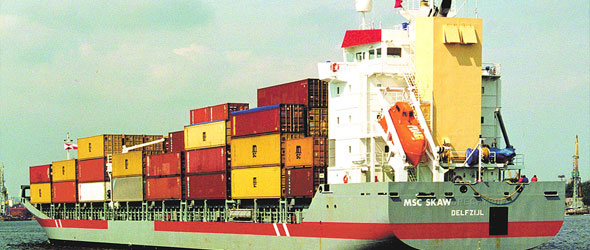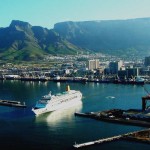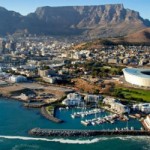Cape Town – Amid a dramatic increase in piracy, South Africa may have to amend its maritime laws if it decides to supply any foreign commercial vessels that carry armed security guards and dock at its ports, Defence and Military Veterans Minister Lindiwe Sisulu said on Wednesday.
Under current maritime laws, it is illegal to have armed guards aboard commercial vessels.
Addressing a media conference at the Third Indian Ocean Naval Symposium hosted at the Cape Town International Convention Centre (CTICC), Sisulu said that because of the increase in piracy in the Indian Ocean, some European countries had been considering placing security – including marines – onboard commercial vessels.
Naval delegates from the 38 African countries and those bordering the Indian Ocean would have to debate the ethics around such a move.
Sisulu said South African commercial vessels did not have onboard security, and that any security was supplied by the navy itself, through its various patrol vessels.
She said the crimes in the Indian Ocean had become unacceptable and described the rise in piracy as shocking, with the number of hostages taken having risen from 186 worldwide in 2006 to 1 016 alone in the Indian Ocean around Africa in 2010.
Africa is particularly reliant on the oceans which made it vulnerable, with about 90% of trade carried by sea. In Tanzania, 57 attacks had been experienced from February 2011 to February this year, Sisulu said.
India’s chief of navy Admiral Nirmal Verma pointed out, however, that there was a risk in carrying armed guards.
He pointed to the incident off the Indian coast in October last year when armed guards aboard a commercial ship mistook a fishing trawler for a pirate boat and opened fire on the fishermen, killing two.
However, he added that no vessel that had armed guards aboard it had been hijacked yet.
But he said ships that carried a “citadel” – an armed room in which crew could hide during an attack – had also been successful in warding off pirates.
The crew escaped inside the protected room and could then not be captured by pirates and used as hostages to negotiate high ransoms.
From October 2008, India has had a ship deployed continuously in the Gulf of Aden to protect shipping.
Sisulu said South Africa had no pirates in its jails or any that were due to appear before the country’s courts.
She added that the idea was for Kenya to prosecute pirates as the country had the necessary laws to do so.
Sisulu said Africa’s response to the increase in piracy needed to be tailored to particular complexities in each country and address specific land-based problems which fuelled piracy.
She called on delegates to develop a collective response to piracy and said non-state actors, such as the media, and government agencies also needed to take part in the forging of solutions.
Ongoing instability, lack of a viable government and poverty fuelled piracy, she said, and also led in some cases to environmental degradation. – BuaNews





